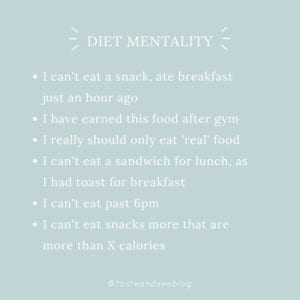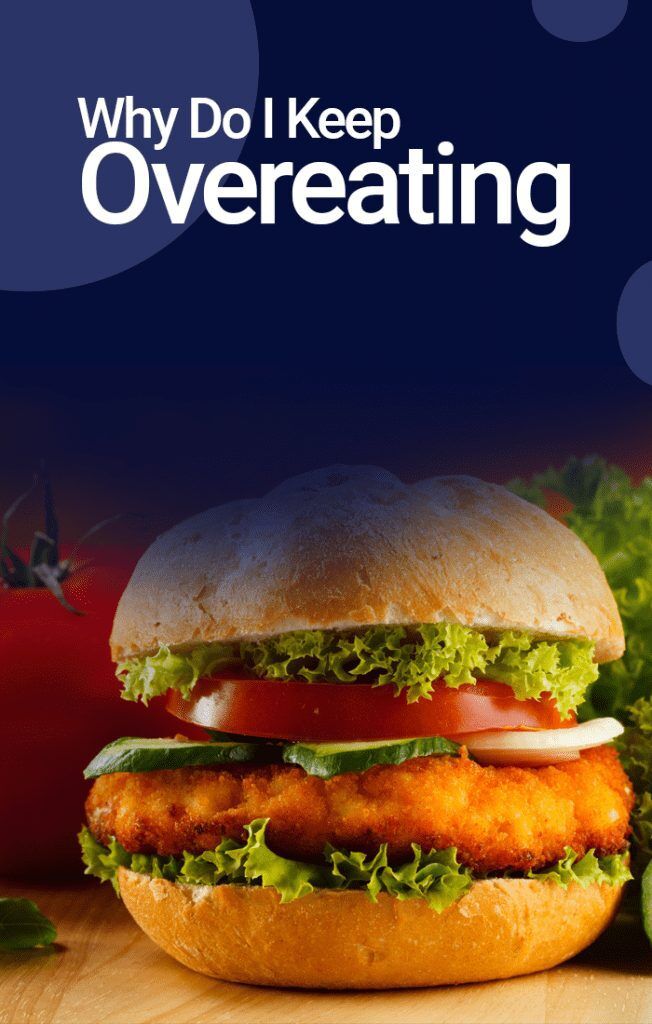“Why Do I Keep Overeating?”
The Overeater’s Anonymous meeting had just started when someone popped the question.
“I’m a food addict in recovery. I know all about the 12 steps and how my rage leads to binges…
“But I’ve calmed down. I’ve made progress. Yet why can’t I stop eating?”
In this post I am going to:
- Give you a blueprint to identify the underlying reason why you can’t stop eating
- List common blindspots that may be blocking you from food peace
- Give a step-by-step exercise to identify food rules
Why Do I Keep Overeating
I remember when I first started living as a monk.
Paradoxically, there was an abundance of food.
Normally you’d think living as a monk you’d have very LITTLE food.
(That was my experience in thailand when I begged for food)
But not in America. No, living as a Zen Monk at Tassajara, on the coast of California, the food was GOOD.
And every 5th day I would STUFF my face full of food.
I’d have the day off, every 5th day, so I could gorge like a starving hyena.
Nuts, fresh bread, a whole table of fig and pasta and fruit spreads for various cheeses, crackers, cookies …
All presented in fine expression, linen clothes, red table clothes, and of course, glass tuppaware to put this handcrafted food into.
YUM.
I’d get my plate …
And GOBBLE it down privately in my room.
I’d then go to sleep, and wake up feeling BLOATED and GUILTY.
I felt like a food addict. Yet then, I saw this diagram:

Seeing this diagram literally changed my life.
For once, I could study my binge eating habits!
Understanding this cycle is the blueprint to stopping your binge eating.
Because binge eating is complex. It’s tricky. There’s no single easy solution.
So to answer the original question …
Why Can’t I Stop Binge Eating?
The answer is that one of those points in the above diagram …
Somehow you are ‘misaligned’ in one or more of those points.
It’s like a hose.
You are trying to get water out of the hose, but no water is coming out.
This means the hose has a kink in it.
Now does the hose have many kinks in it? Or just one?
I don’t know.
But we know there’s at least one kink. That’s why you can’t stop binge eating.
So here are some of the most common incorrect beliefs you might not be aware of for each of the points:
- Restriction
- Limiting your calories to lose weight: might seem good, but is actually a surefire strategy to temporarily lose weight, then regain the weight, and feel terrible about yourself
- Food rules:
- Thinking food as either Unhealthy or Healthy: might seem like commonsense, but sets you up for black and white perfectionist rules which lead to rigid behaviors, feelings of missing out, and leads to deprivation.
- Deprivation:
- Trying to avoid bad foods: might seem like a good idea, but you’ll give in eventually
- Cravings:
- Thinking you use willpower to ‘beat’ cravings: might seem logical, but won’t work long run. You must learn to handle difficult emotions, self-care strategies, and so forth.
- Binge eating:
- Might seem like a failure: but is not a sign that you failed, but a sign you need to study where in the ‘hose’ you are misaligned. Where are you depriving yourself? Where are you restricting yourself? What food rules do you have unconsciously?
- And lastly, shame (ahhh my old friend):
- Might seem like you deserve the ‘negative thoughts’: but really is a chance for you to practice self-love, feel and turn towards painful emotions, practice ‘distress’ tolerance, and the best time to rewire your brain (from rumination and depression to silver-lining-thinking)
Practical Exercise To Stop Binge Eating
Food rules are tricky.
You learn food rules growing up from your parents, culture, upbringing, etc
Which means most of your food rules are unconscious.
Here are some common food rules you can explore – in the area of restriction.
Please note these are all forms of dieting and restriction. In all these cases, there is a ‘perfectionistic’ behavior which ends up restricting you setting you on the path to failure.
After you identify a ‘kink’ you then identify your thoughts around the kink. See how the thought is black and white. Then take a more open, flexible approach. Examples below, but first let’s see how we restrict:

- meticulously counting calories or grams
- Eating only safe foods
- Eating only during certain times of the day
- Paying penance for eating bad foods
- Cutting back on food when events come up
- Limiting carbohydrates
- Putting on false food face in public
- Competing with someone else who is dieting
- Logically deciding what you should eat based on what you ate that day, rather than listening to hunger cues
Example: Paying penance for bad foods.
As you read this list, something about the bullet point “paying penance for bad foods” stands out to you.
You realize that when you eat bad foods, you tend to “even the score” by exercising, skipping the next meal, not eating carbs the next day, or some other behavior.
You then examine your thoughts. For example, “I ate too many bagels the other day at work. Now I to exercise (or other penance behavior) to make myself good again.”
By identifying your thoughts, you are in a much better position to take a more flexible approach.
For example, instead of being a bad person by eating bagels and good person by exercising, you are much more than that!
You can replace that thought by saying “I had some bagels yesterday because I was stressed out and bored in a weird combination. I feel like I screwed up. Yet I know I am much more than my eating behaviors.”
Here is another WebMD resource on why you can’t stop eating.
I also talk about food rules in this podcast episode here.




